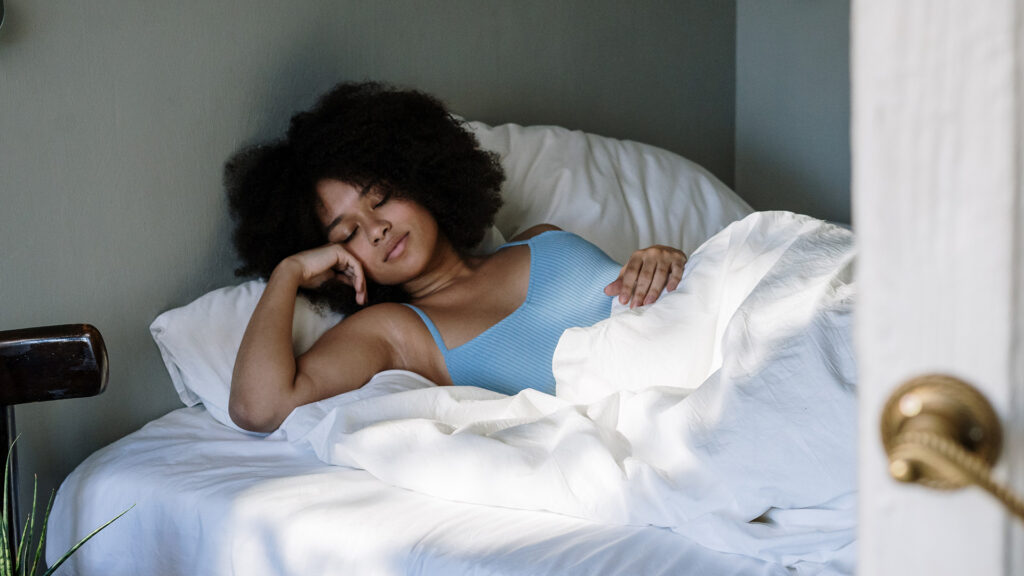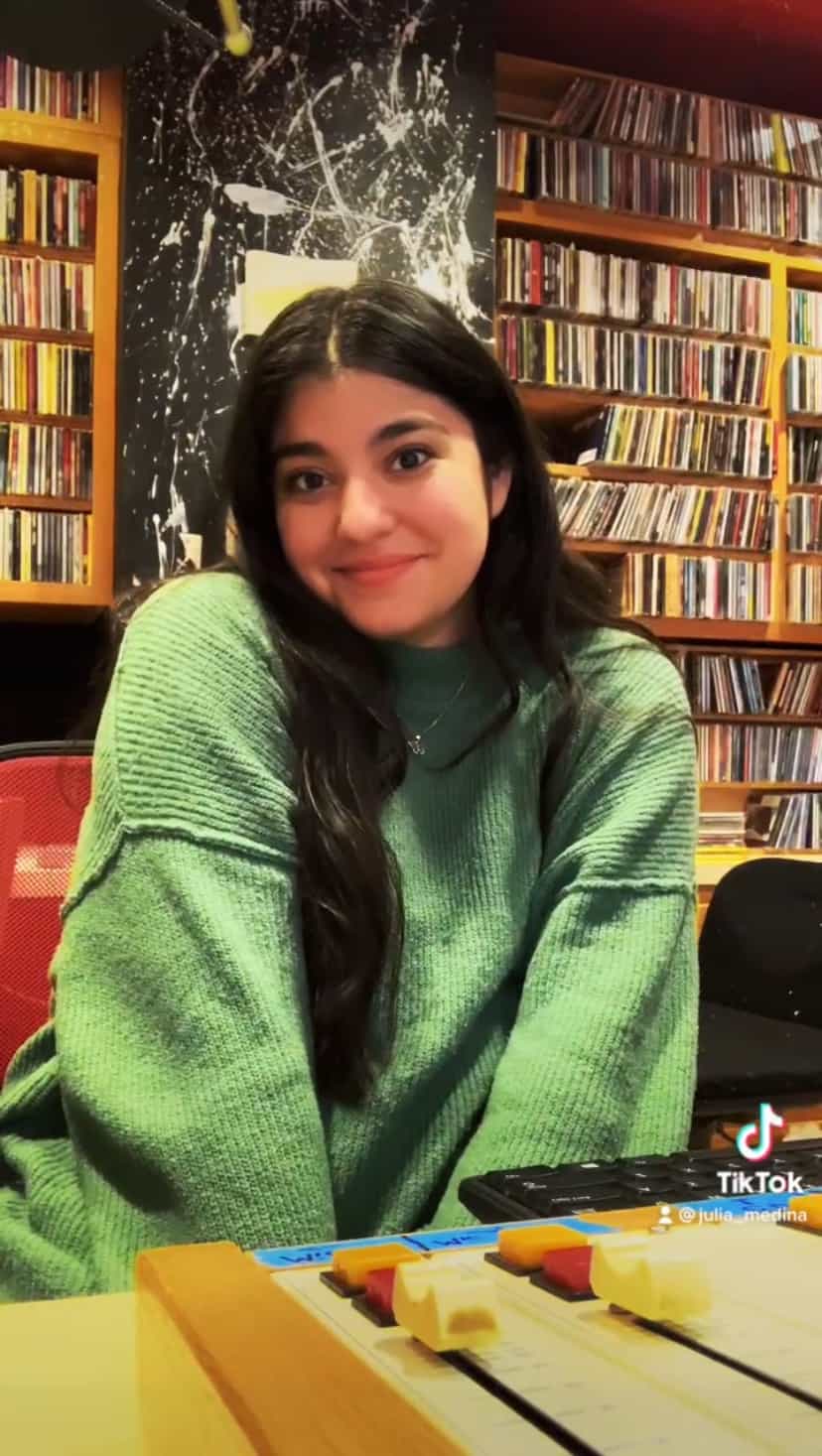
Counting sheep, meditation apps, or simply just praying sleep will come may be your go-to for falling asleep, but if you’re like singer and YouTuber Madison Beer, falling asleep with the TV is your perfect way to drift off.
On the Pretty Basic podcast, hosted by Alisha Marie and Remi Cruz, Beer explained that she has to sleep with the TV on, but her go-to-sleep shows are chaotic, with Dance Moms or Kitchen Nightmares being her favorites. “All of my friends are like, ‘you are such a manic that you want to fall asleep to Gordon Ramsay ripping people apart about their food,’” Beer points out. “I’m like, there’s just something about it that’s relaxing to me,” she continued.
Marie and Cruz didn’t relate to Beer’s experience, with Cruz pointing out that none of that sounds like a soothing sleep experience. But does sleeping with your TV on actually have any effects on sleep?
The truth is there’s limited research on how much this affects your sleep, with the majority of them focusing on the effects of blue light from TV screens.
Dr. Shelby Harris, Sleepopolis’ director of sleep health, explains that limiting screens before bed is an important step in practicing good sleep hygiene. This would include turning off your TV before bed, because you can easily get sucked into whatever you’re watching — binging shows is popular for a reason. She suggests limiting any blue light exposure 1 – 2 hours before bed, meaning, put away your cell phones, computers, tablets, and turn off those TVs.
While this is the suggested way to sleep, according to a national survey by LG Electronics in 2014, 61 percent of Americans fall asleep with their TV on. Some people have connected falling asleep to their TV being on, similar to how you might associate your stuffed animal or blankie with comfort to fall asleep.
Dr. Kristen Casey, a licensed clinical psychologist who specializes in Cognitive Behavioral Therapy for Insomnia (CBT-I), explained if you have to use a TV to fall asleep, make sure to set a sleep timer because your brain still responds to stimulants even when you’re asleep.
If you’ve had the shared experience of falling asleep to Nickelodeon and waking up to the George Lopez theme song, you know firsthand how your TV can still affect you while asleep.
Unlike Beer, you’ll want to try and avoid any stressful or intense shows or movies while trying to go to bed. Leave the crime documentaries for daytime.
Ultimately the decision is up to you, but if you notice falling asleep with the TV on is negatively impacting your sleep rather than helping it, try instead to read before bed or journal. But if you’re not having any troublesome side effects, you can drift off dreaming about who’s at the top of the pyramid like Beer.



























